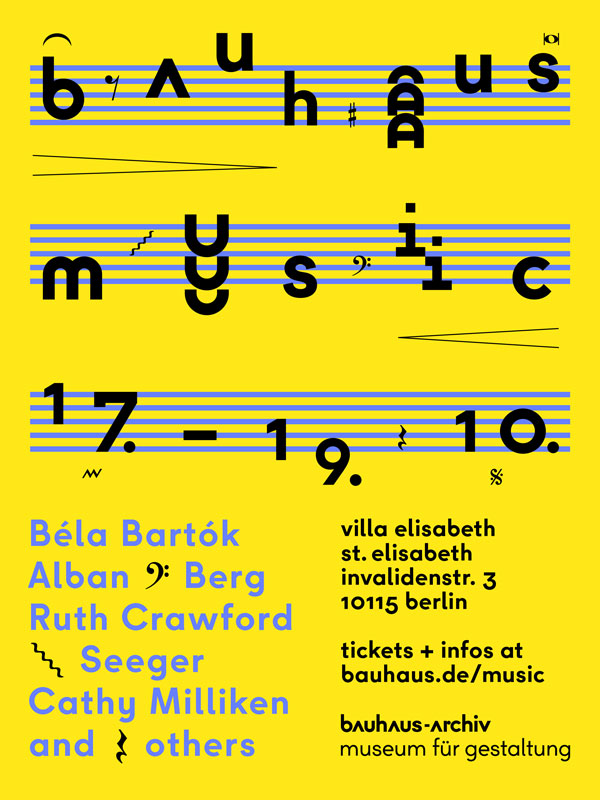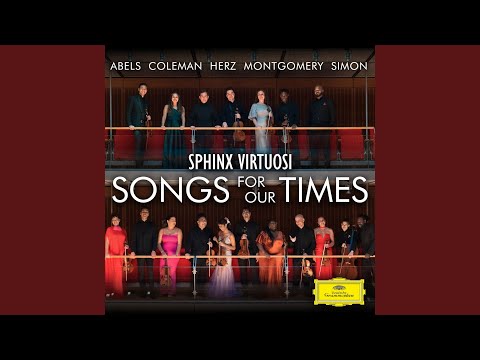- Alice Sara Ott, Karina Canellakis, Netherlands Radio Symphony Orchestra: “Beethoven” (Deutsche Grammophon)
- Mark Steven Doss: “Welcome to My World” (Cedille)
- Sphinx Virtuosi: “Songs for Our Times” (Deutsche Grammophon)
“Beethoven”
It’s always fun when an album nearly slips past your radar until it becomes the catalyst for controversy. This isn’t a slight to Alice Sara Ott, whose early recordings of Chopin’s complete waltzes and Beethoven’s “Waldstein” Sonata are among my favorite interpretations. More likely, her Beethoven compendium—including a live performance of the First Piano Concerto with Karina Canellakis and the Netherlands Radio Symphony Orchestra, the “Moonlight” Sonata, and a grab-bag of piano miniatures—escaped me thanks to an ongoing hangover from 2020’s Beethoven year (and the expectation that many of those thwarted completist concerts of concerti, symphonic, and sonata cycles will be ready to greet us in 2027).
But then Norman Lebrecht entered the chat.
Lebrecht’s review of “Beethoven” linked Ott’s repertoire choices of “bottom drawer” works “little higher than kindergarten level in difficulty” to the pianist’s 2019 announcement that she had been diagnosed with multiple sclerosis, effectively accusing Deutsche Grammophon of a cash-grab in the face of “a degenerative condition.” This prompted Ott to respond on Instagram with a series of fact-checks calling Lebrecht’s “comments and implications” about her health “simply wrong and dangerously misleading.” In her statement, Ott points to the different forms of MS, noting that hers, relapsing-remitting MS, is not a progressive degenerative condition, and says that her MS has not been active since she initially received her diagnosis and sought treatment in 2019.
“His way of labeling someone and reducing them to decreasing health is the exact reason why it’s still so hard for many to come out and talk about their own conditions, whether they be physical or mental health-related,” Ott adds. (To her credit, it’s not the first time Lebrecht has led with her condition since she made it public.)
If anything, it’s a fitting transition to discussing the composer at hand. Of the “Waldstein” Sonata, Ott noted that it was impossible to listen to the work without hearing the echoes of Beethoven’s famous “Heiligenstadt Testament,” in which he described his own progressive deafness and the idea of the other manifold aspects of his personality and work being folded in on this one detail of decreasing health. Beethoven completed his “Moonlight” Sonata around the same time, dedicating it to his pupil Giulietta Guicciardi a few months before writing the “Heiligenstadt Testament.” Bernard Rose’s 1994 film “Immortal Beloved” has Gary Oldman’s narration of the Testament over the first movement of the “Moonlight” Sonata, played as he walks away from his broken love affair with Guicciardi (played by Valeria Golino, who was just cast as Maria Callas’s sister, Jackie, in the Angelina Jolie-starring biopic).
It’s illuminating to hear “Moonlight” played in this context, not as a romantic rendezvous on Lake Lucerne, but as a spiritual reckoning, possibly with Beethoven’s broken heart. Or his broken body. Or his broken psychological state. Or all three. Pianist Edwin Fischer famously linked the sonata to an early scene in Mozart’s “Don Giovanni” when, under cover of moonlight, Giovanni fatally wounds Donna Anna’s father. The music comes to a stop, and then gradually recovers itself in an ostinato of triplets that underscore the Commendatore’s final words: “Ah, soccorso! Son tradito…” Ah, help me, I am betrayed…
I’m not here to psychoanalyze Alice Sara Ott, but—just as it was hard for her to hear the “Waldstein” and not hear Beethoven’s Heiligenstadt era of despair—I likewise get the same effect hearing her opening movement of the “Moonlight” Sonata, which follows the same incessant triplets in the left hand as Mozart’s, simply transposed to a more haunting, velvety key. Was Beethoven’s connection to this moment the betrayal, the progressive slipping of the mortal coil? Does Ott, a deeply-sensitive and introspective pianist with a lifelong affinity for Beethoven, share any of the same feelings towards her own condition? I’m not so much curious to know this as an effort to reduce Ott to her condition, but rather to expand on the manifold possibilities contained in this “kindergarten-level” movement. It would be easy to skip over this track, especially after Ott’s invigorating and incisive Piano Concerto (she and Canellakis have a natural rapport, the conductor’s crisp orchestral accompaniment pair well with the pianist’s quiet-riot of opening and closing movements, bookending a heady largo section), or to listen to it as companionable background music. But it would be a mistake.
“Welcome to My World”
It’s both a luxury and a crime that we’re only just now getting Mark Steven Doss’s debut solo recording. At 66, he still sounds in his prime, but we’ve also been robbed of the possibility of a much fuller discography. His performance as the High Priest in the Kathleen Battle-led recording of Handel’s “Semele” earned the Cleveland-born bass-baritone a Grammy award in 1993, and he also has a blink-or-you’ll-miss-it cameo on a section from “La Sonnambula” on Battle’s solo album from the same year, “Bel Canto.”
It’s actually the Bel Canto Foundation that became the catalyst for Doss’s first recording, which brings the foundation’s early boost to the singer’s career in 1985 full circle. His opening gambit, a selection of Faust-inspired arias by Berlioz, Beethoven, Mussorgsky, Boito, and Gounod make the summer album a good hook for October. I missed the full orchestration that gives Berlioz’s, Boito’s, and Gounod’s devils their due, but Ken Smith is a committed collaborative pianist and the pair’s interpretation of Beethoven’s “Aus Goethes Faust” is effective in its balance of sink-in-your-teeth acting and restraint. Hearing his copal-hued low notes in Mussorgsky’s “Song of the Flea” makes me wish I’d heard Doss as Khan Konchak in Borodin’s “Prince Igor,” though it suggests that this might still be a possibility.
For a singer with over 100 operatic roles in his repertoire, Doss’s world is, as one might expect, a wide one. There are nods to his bel canto and Handelian past, as well as a section in homage to baritone Todd Duncan, George Gershwin’s personal choice to originate the role of Porgy. In 1945, he also became the first Black singer to perform with a major opera company when he starred as Tonio in “Pagliacci” at New York City Opera. Doss gives us three excellent songs from Kurt Weill’s 1948 work “Lost in the Stars,” which for Doss represented “the kind of role I had been dreaming of since 1935,” but even more moving for me was the eleven-o’clock-aria from Louis Gruenberg’s “The Emperor Jones.” An example of the early Metropolitan Opera’s commitment to new and contemporary works, it’s an opera that seems poised for a revival. Hopefully Doss’s schedule is open.
The latest from VAN, delivered straight to your inbox
“Songs for Our Times”
Back in the George W. Bush administration, I had a short-lived job as a copywriter with a PR firm in Los Angeles that was formed to meet the growing number of “green” and other socially-conscious companies, which says a lot about the state of classical music opportunities in LA during the early aughts. A highlight of this era, however, was when one of our clients, a progressive school in Santa Monica, casually mentioned during a brainstorm session that their music director would have a piece performed at Carnegie Hall. If you want to see a time capsule of high school fashion in 2007, the KTLA segment we placed for this still lives on YouTube.
For me, the real takeaway from that moment was meeting “the Mike young musicians want to be like,” more formally known these days as Pulitzer-laureate composer Michael Abels. That year, the Sphinx Organization performed a commission from Abels, “Delights and Dances,” for its tenth anniversary. The organization celebrated its 25th anniversary in 2022. Abels co-won the Pulitzer win earlier this year (he shares the honor with his co-author for the winning-work, Rhiannon Giddens). That Sphinx opens its Deutsche Grammophon debut recording with another Abels work is cosmically fitting.
He initially wrote “Global Warming” in 1990, in the aftermath of the fall of the Berlin Wall and the thawing of the Cold War, but also at a cultural moment in which the climate crisis gained mainstream traction. “The piece was not written as a political statement, but its political message has inevitably deepened as climate change has evolved from theory into reality,” Abels has said of the work, orchestrated here for string ensemble. The opening shades of Dvořák give us the pan-cultural warming that felt tangible in the last decade of the 1900s. But as the title suggests, Abels gives us the full gamut of “warming.” Musical modes come together, blending in their similarities, but eventually they dissipate until we’re left in the same sonic desert where we began. Was it all a mirage? Or the vision of something that we could still attain? Listening to the work in the last week, I remain pessimistic, but I still want to be like Mike.
And like the Sphinx musicians, for that matter. Their incandescent readings of “Global Warming,” along with other highlights like Jessie Montgomery’s “Divided”—a live wire of existential despair that resolves into kinetic action—and an orchestration of the Presto section of Beethoven’s “Kreutzer” Sonata, remind us that our time is fraught, but it’s not a total wash. ¶
Subscribers keep VAN running!
VAN is proud to be an independent classical music magazine thanks to our subscribers. For just over 10 cents a day, you can enjoy unlimited access to over 875 articles in our archives—and get new ones delivered straight to your inbox each week.
Not ready to commit to a full year?
You can test-drive VAN for one month for the price of a coffee.





